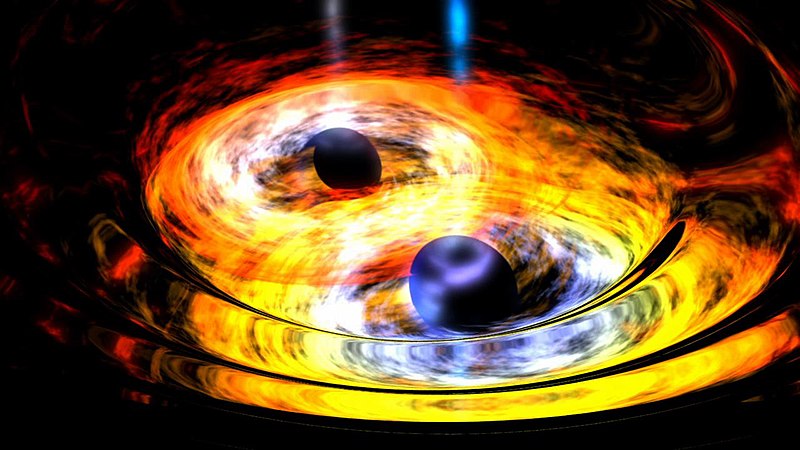
In October, the doctoral thesis by the noted English physicist Stephen Hawking was made available to the public for the first time. Cambridge University, which granted the degree in 1966, announced that Hawking’s thesis, entitled Properties of Expanding Universes was the most-requested thesis in its collection of open access material. Professor Hawking’s degree was granted in the Faculty of Mathematics in the field of Applied Mathematics and Theoretical Physics. His thesis advisor was Dr. Dennis Sciama, a British physicist of Syrian origin. As media reports indicated, there were so many people wanting to download the thesis by Hawking that the Cambridge website crashed. A spokesperson for Cambridge University explained:
We have had a huge response to Professor Hawking’s decision to make his PhD thesis publicly available to download, with almost 60,000 downloads in less than 24 hours. As a result, visitors to our open access site may find that it is performing slower than usual and may at times be temporarily unavailable.
Professor Hawking himself released a statement:
It’s wonderful to hear how many people have already shown an interest in downloading my thesis — hopefully they won’t be disappointed now that they finally have access to it! By making my PhD thesis Open Access, I hope to inspire people around the world to look up at the stars and not down at their feet; to wonder about our place in the universe and to try and make sense of the cosmos. Anyone, anywhere in the world should have free, unhindered access to not just my research, but to the research of every great and inquiring mind across the spectrum of human understanding. Each generation stands on the shoulders of those who have gone before them, just as I did as a young PhD student in Cambridge, inspired by the work of Isaac Newton, James Clerk Maxwell and Albert Einstein.

The TU Libraries own a number of books by and about Stephen Hawking. Professor Hawking is particularly noted for his work in the subject of general relativity and the theoretical prediction that black holes emit radiation, often called Hawking radiation. Using the general theory of relativity and quantum mechanics, Professor Hawking developed a theory of cosmology, the study of where the universe came from, what is happening to it, and where it is going. On some subjects where certain knowledge is lacking, Professor Hawking has had some interesting ideas, such as suggesting that there are many, perhaps an infinite number of, universes, and any event that might have happened in the past of our own universe but did not, has likely happened somewhere else, in another universe. This idea, which some students may find difficult to imagine or believe, is known as the many-worlds interpretation of quantum mechanics. It is also referred to as the many-universes interpretation or multi-history. Professor Hawking is responsible for many other interesting discoveries in his field, many of them involving black holes and the Big Bang theory. The TU Libraries own several books for the general reader about both of these concepts. Even students who are not in the science faculties may find it interesting and inspiring to know a little more about the way the universe functions. For example, as the National Aeronautics and Space Administration (NASA) defines black holes:
A black hole is a place in space where gravity pulls so much that even light can not get out. The gravity is so strong because matter has been squeezed into a tiny space. This can happen when a star is dying. Because no light can get out, people can’t see black holes. They are invisible. Space telescopes with special tools can help find black holes. The special tools can see how stars that are very close to black holes act differently than other stars.
Just over forty years ago, Professor Hawking came up with a result that surprised many specialists in this field. It was thought that nothing could get out of black holes, because the gravitational pull was so strong. Yet using quantum theory, Professor Hawking showed that black holes could explode with heat and disappear.

When students planning to write a thesis read a thesis by a young doctoral student who became an important ajarn, they pick up ideas about how to organize and present their work and the words to choose to express it. The abstract for the Ph.D. thesis of Stephen Hawking starts:
Abstract
Some implications and consequences of the expansion of the universe are examined.
Note that no words are wasted. In Thai English, this might have been written using more words:
This thesis is about some implications and consequences of the expansion of the universe.
Stephen Hawking did not feel it was necessary to include the words this thesis, since obviously every reader knows that it is a thesis. By avoiding the typical repetition of this thesis or this research or this paper, he saved words. Getting a message across in as few words as possible is a sign of good writing. Most writers of theses in Thai English try to seem dignified and formal in their writing by including as many words as possible. This works against the reader, who is hurried and has little time. Readers want to know information as fast as possible. So being polite to the readers and keeping them in mind, we try to keep our abstracts and the rest of the thesis as short as possible, while communicating all the necessary information.
Dr. Puey Ungphakorn’s Thesis
Thai students and ajarns may also be inspired by looking at the Ph.D. thesis of Dr. Puey Ungphakorn, available online from the Puey Centenary website. Dr. Puey’s thesis, on The Economics of Tin Control, was accepted at the London School of Economics in 1949. It was his longest sustained project in writing in English, although he wrote many articles and speeches in English later in his career. Its clear organization and presentation are ideal for a highly technical subject. Even students who are not interested in economics or tin may find something of interest in the way this thesis is written. As a general rule, looking at abstracts of theses by specialists in any field of study can be informative. If a student admires the work of some previous scholar, looking up that ajarn’s Ph.D. thesis, if it is available on open access, can be worth the effort. In this way, generations of students share with one another over the years.

(All images courtesy of Wikimedia Commons)
